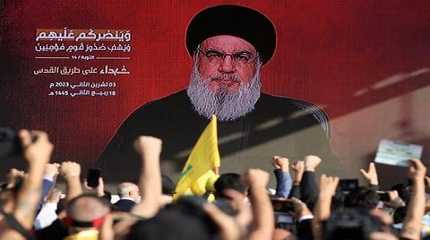
BEIRUT, Nov 3 (Reuters) - The leader of Lebanon's Hezbollah warned the United States on Friday that preventing a regional war depended on stopping the Israeli attack on Gaza, and there was a realistic possibility of fighting on the Lebanese front turning into a "wide war".
Sayyed Hassan Nasrallah, in his first speech since the Israel-Hamas war erupted on Oct. 7, also threatened Israel's main ally the United States, hinting his Iran-backed group was ready to confront U.S. warships in the Mediterranean.
"You, the Americans, can stop the aggression against Gaza because it is your aggression. Whoever wants to prevent a regional war, and I am talking to the Americans, must quickly halt the aggression on Gaza," Nasrallah said.
"You, the Americans, know very well that if war breaks out in the region, your fleets will be of no use, nor will fighting from the air be of any benefit, and the one who will pay the price will be ... your interests, your soldiers and your fleets," he said.
Referring to U.S. warships in the Mediterranean, he said Hezbollah was not afraid of these. "I tell you with all sincerity, we have prepared well for your fleets, with which you are threatening us," he said.
Israel laid devastating siege to Hamas-ruled Gaza following the Oct. 7 cross-border assault by the Islamist group's militants that killed around 1,400 people, with about 240 spirited as hostages back to the Palestinian enclave.
Gaza health authorities say at least 9,227 people - many of them women and children - have been killed since Israel started its blitz on the small coastal enclave of 2.3 million people.
Since the Gaza war erupted, Hezbollah, a formidable military force backed by Iran, has been engaging Israeli forces along the Lebanon-Israel border in the deadliest escalation since it fought a war with Israel in 2006.
Nasrallah said Hezbollah had been escalating day by day at the Lebanese front, forcing Israel to keep forces near its northern frontier instead of the Gaza Strip and the occupied West Bank to the southwest.
How that front develops would depend on the course of events in Gaza, and Israeli actions in Lebanon, he said.




